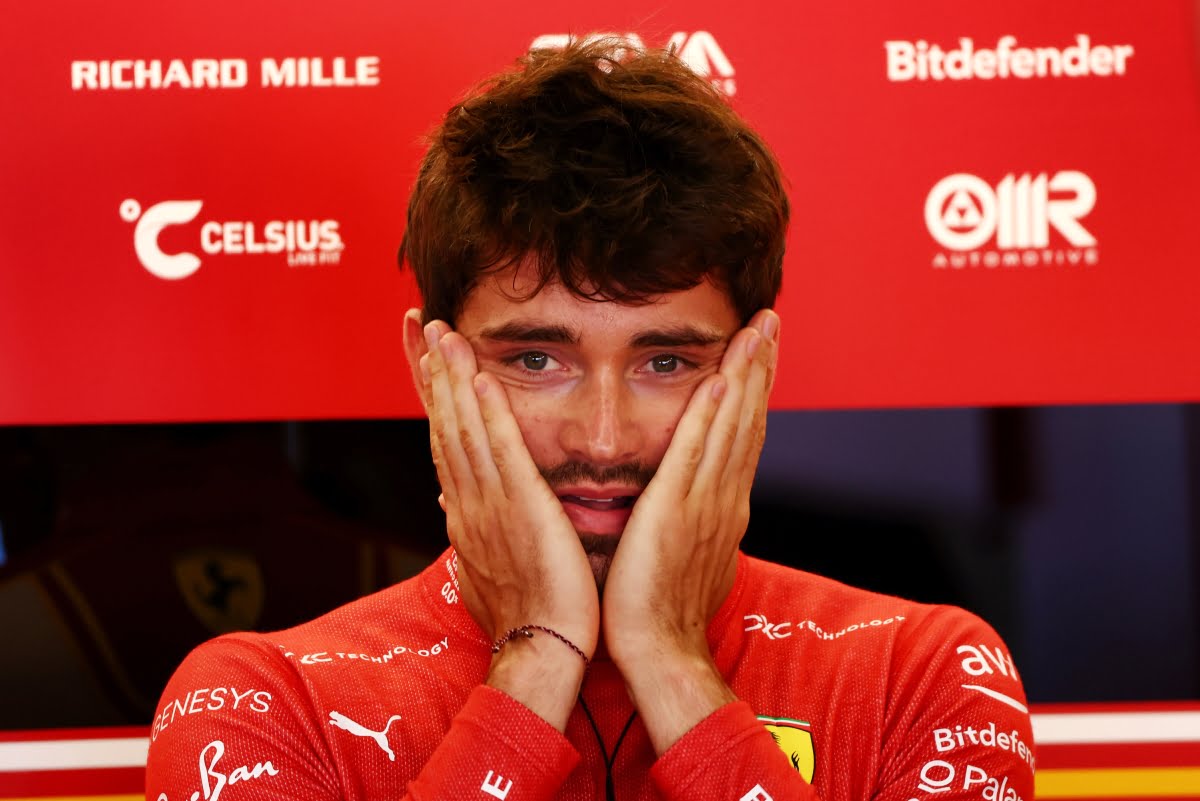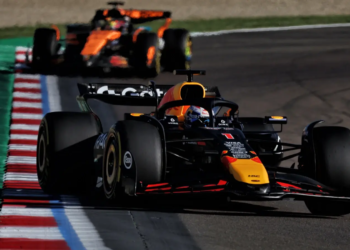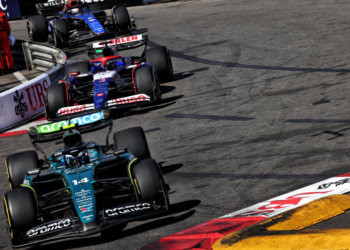Ferrari’s Charles Leclerc has urged changes to how time penalties are used in Formula 1 as he believes the current process doesn’t ensure consistent punishments.
The topic of penalties proved to be a hot debate in the build-up to the Japanese Grand Prix following the stewards’ decision to punish Fernando Alonso in Australia.
Alonso was handed a 20-second drop as he was found to have “slowed 100 metres” on the approach to Turn 6 and contributed to George Russell’s final-lap crash.
The Spaniard, who remonstrated that his manoeuvre had not constituted a “dangerous” move, dropped two places from sixth to eighth in the overall classification.
Leclerc believes Alonso deserved to be disciplined but flagged how the punishment imposed from time penalties differs depending on where the driver is on track.
Leclerc’s Ferrari team-mate Carlos Sainz was punished at Albert Park 12 months prior for a restart incident and the bunched field meant he dropped out the points.
“My view is that it’s something that we do as drivers, however not to that extent,” Leclerc said. “And it was too much. What Fernando did in Australia was too much, and had to be penalised.
“However, I believe that there is something that we need to look into in terms of the penalty that we are giving.
“However, we’ve been working with time penalties for a long time, which I think is a bit wrong, because you are a bit of a victim of your own luck, in a way that if you’ve got a Safety Car, two laps to go, which could have been the case in that scenario, then you go from fifth to last. If you are in a position like Fernando was, you only lose two places.
“So I think there is something to look into, and especially for the future, to try and improve.
“I’ve always thought that I think positions of penalty is more fair, because whatever the race situation you are in, you are penalised.
“You are penalised like you are intended to be penalised. However, with time penalty, there can be inconsistencies, just depending on race situation.”

While Leclerc accepts that the regulations don’t cover incidences such as the Alonso one, he reckons “common sense” prevailed to penalise the Aston Martin driver.
“I think it’s clear what we can and can’t do,” he added. “You can always try and write it in a better way for it to be even clearer.
“However, I really believe that sometimes common sense is the way forward.
“We will never be able to write in the rules every possible scenario of every situation, and there might be situations where it is clear for everybody, and especially the drivers, that someone deserves a penalty, even if this particular scenario is not written in the rules. So I think common sense needs to be used in certain cases, and this was one of them.”









